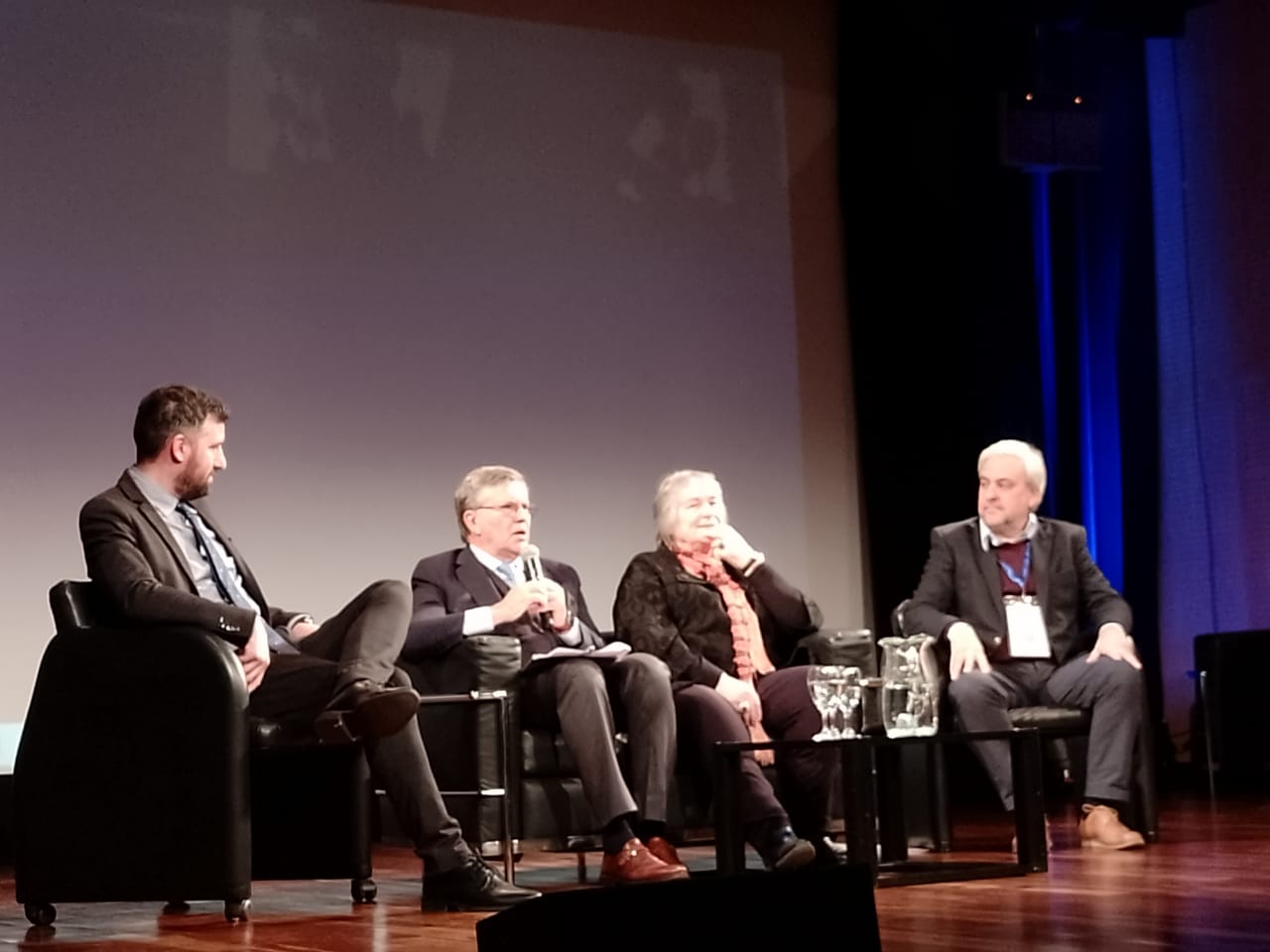The three working days were designed to improve participants’ knowledge of electronic phytosanitary certification; increase the participation of countries in the region; exchange information among countries; promote networks of experts and identify areas for cooperation.

Buenos Aires, 19 April 2023 (IICA) – The dissemination of electronic phytosanitary certificates (ePhyto) has been key to the greater speed and transparency of Latin American and Caribbean electronic trade and thus its use should be increased. This was the consensus of specialists from various countries attending a Regional ePhyto Workshop in Buenos Aires, organized by the Plant Health Committee of the Southern Cone (COSAVE) and the National Service of Agrifood Health and Quality (SENASA) of Argentina.
The event, organized with the support of Argentina’s White Helmets Humanitarian Aid Agency and the Inter-American Institute for Cooperation on Agriculture (IICA), took place at the auditorium of the country’s Ministry of Foreign Affairs, International Trade and Worship, which also lent its support to the initiative.
With this workshop, COSAVE, which serves as a coordination mechanism to tackle phytosanitary problems of common interest to Argentina, Bolivia, Brazil, Chile, Paraguay, Peru and Uruguay, targeted public and private sector specialists from countries throughout Latin America. Other international organizations were also invited. The three working days were designed to improve participants’ knowledge of electronic phytosanitary certification; increase the participation of countries in the region; exchange information among the countries; promote networks of experts and identify areas for cooperation.
Argentina and Chile were the pioneering countries in electronic health certification in the region. Diana Guillén, President of SENASA, explained that ePhyto certification was a tool that the country began to implement several years prior, with its use being ramped up during the COVID-19 pandemic, due to the restrictions in movement.
Guillén indicated that, “The quarantine fast-tracked the incorporation of a tool that has become essential today. We use it to trade food with more than 30 countries. Thirty-seven percent of what we export in Argentina and a considerably greater percentage of what we import is certified with this system. Among other benefits, it allows us to use less paper, which is beneficial to the environment”.
The official commended COSAVE for its valuable work, saying that, “It was established in 1989 and has been a regional public policy that has endured amidst political changes, maintaining a clear vision”.
The long road travelled
Diego Quiroga, President of COSAVE and National Director of Plant Protection of Argentina, recalled that it had been almost 10 years since the national phytosanitary protection organizations in the region had decided to press ahead with electronic certification.
He indicated that, “At first, implementing it seemed almost impossible, and was merely a wish. Today, we have come a far way, having gradually taken the steps to develop a tool that is now in effect and useful for many countries. With the onset of the pandemic, it became even more important than what we had imagined and proved extremely valuable for international agricultural trade in South America”.
The White Helmets’ National Director of International Cooperation, Santiago Galar, confirmed that working on mechanisms that streamline international trade to make it safer and more efficient, as is the case with ePhyto, is very important for Argentina’s Ministry of Foreign Affairs.
“Electronic phytosanitary certification contributes to integration, sustainable development and production, all of which are a plus for Argentina”, said Galar.
On the other hand, IICA Director General Manuel Otero applauded the work of COSAVE and SENASA, pointing out that, “Argentina has amassed a wealth of technology and expertise in the area of exportation, which is fundamental to enabling the continent to continue moving towards sustainable development, using agriculture as a critical tool”.
Otero also maintained that once Chile and Argentina had laid the foundation for electronic phytosanitary certification, other countries had gradually come on board.
Otero pointed out that, “Ephyto offers many benefits, as it not only streamlines transactions, but allows us to reduce ambiguity and increase the transparency of operations”.
He suggested that electronic certification could be a tool to assist in expanding intraregional food trade within Latin America and the Caribbean, stating that, “Today, trade within the region is only 14.5%, as compared to the European Union, where it is 65%. We have a far way to go, and this tool can assist us considerably. We need to share technology and to work together more closely. This is the way to increase trade and integration”.
More information:
Institutional Communication Division.
comunicacion.institucional@iica.int











